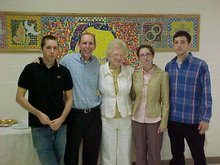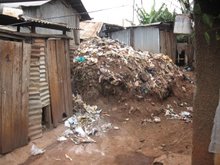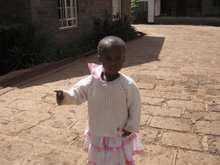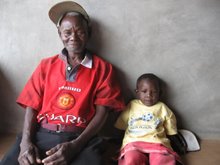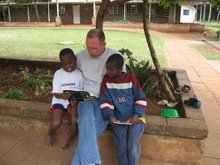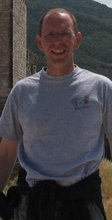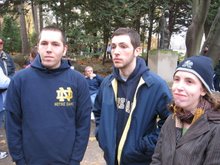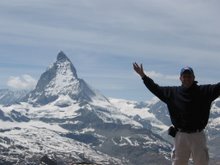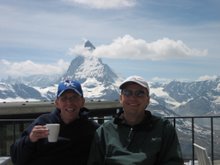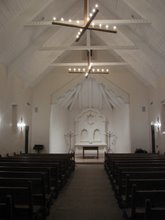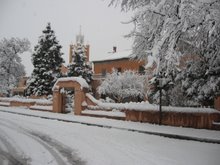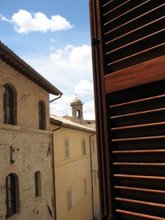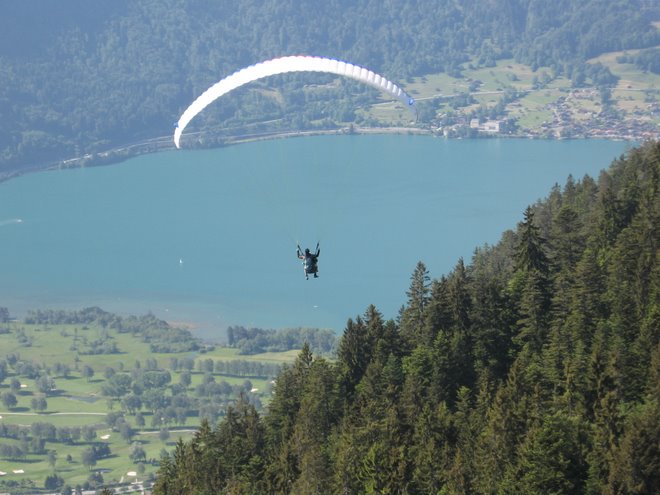A new website and periodic newsletter have been created and are available at www.edcolinafoundation.org Please take a minute to view the website. Also on that website you’ll see a box to easily sign up for the monthly E-newsletter. You can register to receive new blog entries about daily life in Africa. The blog which many of you have followed for the last years, will move to the new website.
1.) Enter the site - www.edcolinafoundation.org
2.) Sign up for monthly newsletters - lower right
3.) Subscribe to BLOG - top right
THANKS!
Sunday, August 16, 2009
Wednesday, June 24, 2009
Back in the USA
I have been home from Kenya for over a couple of weeks now. I got in to CVG after a good flight from London. It is great to be home although I am missing the Masai folks big time. I called a couple friends in Kenya to see how things were going. Fred, the Masai, has malaria. He’ll be ok but said he was pretty sick and missed some school. Tall Benson is good, still looking for work - like so many people in Kenya!
I have my work cut out for me during my time here in the states. The account of the mission fund is low and I need to find some way to make some money for my next trip to Nairobi. Any help would be appreciated and can be given through the Immaculate Heart of Mary Mission Fund – Africa Project. We are working to create a new foundation, JOURNEY:The Ed Colina Foundation, which can accept donations as a tax-exempt entity. I have a terrific board that is working hard to create something great!
Since being home I have been able to see some friends, spend time with Chris, Diane and family. I have also been able to see Kathy and Karen and bore them all with my videos. Joe and Becky, Fred and others! As always, I have been able to have some quiet times, mostly later in the evenings and revisit some of my reading, writing and thoughts about this great journey we are on. Sunday, the readings at church were helpful to pull me back into a more spiritual space – nothing drastic or earth shattering, but just to remind me what I am doing and why. There were scripture passages about blood sacrifices and the Eucharist. I couldn’t help think of the Masai and their practice of drinking blood. Blood is life. As I’ve written many times, I have a simple Theology of following Jesus, giving my life away, piece by piece and allowing myself to be filled (or refilled). It somehow works for me. Jesus is being broken, shared and given away. I try to follow.
This trip to Kenya has been different. In the past, I made an effort to structure my life, my prayer, etc. as much as I could. I think part of that was a head-trip – trying to be a little monk – but I guess it was necessary. I learned from it. This trip I am more connected to people in a holistic way. I have more time to be alone but the quality is different somehow. It is not forced. One reason this trip is different is that those I am in most contact with are adults, be they young adults – instead of the kids. I can ask, share, learn and pray with/over. Benson (Tall Ben), the Turkana ex-seminarian I have written about, struggles with the church much more than I. I thought at one time that he was leaning towards Muslim religion for its “love of what is true” and he sees what he considers the hypocrisy of his old religious order. Of course he does, he’s young and with that youth comes some immaturity! Everyone usually can and will disappoint you if you are looking for perfect people. Ben even went to a Seventh Day service. Hated it. But he is on the journey. It is fun to get excited about it with him and encourage him. “The best argument against the bad is the doing of the good.” I told him – “just do things better and don’t worry about the hypocrisy of others, etc.” Benson prays four or five times throughout the day and night. I find him sitting alone sometimes or he disappears for twenty minutes or so throughout the day. I learn from that and am drawn into his schedule. He is still living in Kibera slum, looking for money, looking for food and a chance.
Fred, the young Masai man from the manyatta near me has listened to me talk about life, what I wanted and what I didn’t want. He’s heard me talk of how I want to live the second half of my life. We are “passing” each other – he coming from nothing to “build his life” and me trying to simplify. My Kamba friend Mwololo believes that the rains aren’t coming because people like me aren’t going to church. He’s Catholic. So . . .I am having a great time and trying to become even closer to God because I have the sense He wants to be closer to me. . . . maybe as close as being my food for the journey.
Sometimes I just sit and smile. (not always - but sometimes!) This life is big and I have lived longer than my best friend John, who I remember especially each Holy Thursday. That is something – a gift I have been given, not only to live these many years after he suddenly died, but to be able to live it so fully here in Africa! I can’t believe it. I tried to explain that to Masai Fred and Mwololo – why this time of living with them is so holy and such a gift. The project is doing a lot but . . . I am the one benefiting! I can never be thankful enough.
The Kamba culture (from the Village where I used to work) is simple, basic, and beautiful. But the spirituality, although I would like to think that the simplicity of lifestyle would be a help, I actually find the religion immature in a way. It works for them but does not satisfy me. In the case of the village, I blame the church for keeping the people fear-based and somewhat ignorant. At the same time though, there is the simple trust in God, faith that it will rain, believing in God for miracles etc. It is a blind faith I don’t have. But the people will stay at that place with the priest calling the shots and telling them how to live. Anyway, I guess they have a right to whatever faith life they choose. They are a simple, uneducated people. We, on the other hand, should know better and can think for ourselves. We fear everything and protect ourselves and our stuff and our way of life. It is the opposite of faith.
The Masai seem to be even more connected to the earth. The Turkana - who I traveled to visit – even more. A lot of times I get caught up in the work and the stuff to do here in Kenya. You are faced daily with some weather events that lead you to think seriously about God and what God is doing with the weather here – no rain. So the elements make you reflect on God some but I get caught up in the work. I don’t take the time I need but am doing ok feeling connected.
So what is expected of me now? I don’t know. To know would make it easier and why I think people are so easily attracted to a church of “do this, don’t do that”. You know what is expected, at least from the church. But Jesus asks me to follow him. And that leaves the door open to interpretation. I don’t think it is about doing (again that would be easier eh?) I think it is more about “being” and being here, now. And that is work! to not be living in the future or in the past but here, in this moment. That’s where prayer comes in for me – it helps me to be “here – now”. That is the only time I can know the presence of God. I can read about Him in the past and pray to him about the future but can only experience him now – here (wherever) It doesn’t need to be Africa. It can be at home or at school or wherever I can get out of my head.
Everything teaches me (the good and the bad). Everything matters but nothing matters. Everything is serious but you can’t take anything serious. What looks wrong can be right and what looks so holy and right can be so wrong. That’s why we really can’t judge. You just try to stay connected and in the Flow.
I have my work cut out for me during my time here in the states. The account of the mission fund is low and I need to find some way to make some money for my next trip to Nairobi. Any help would be appreciated and can be given through the Immaculate Heart of Mary Mission Fund – Africa Project. We are working to create a new foundation, JOURNEY:The Ed Colina Foundation, which can accept donations as a tax-exempt entity. I have a terrific board that is working hard to create something great!
Since being home I have been able to see some friends, spend time with Chris, Diane and family. I have also been able to see Kathy and Karen and bore them all with my videos. Joe and Becky, Fred and others! As always, I have been able to have some quiet times, mostly later in the evenings and revisit some of my reading, writing and thoughts about this great journey we are on. Sunday, the readings at church were helpful to pull me back into a more spiritual space – nothing drastic or earth shattering, but just to remind me what I am doing and why. There were scripture passages about blood sacrifices and the Eucharist. I couldn’t help think of the Masai and their practice of drinking blood. Blood is life. As I’ve written many times, I have a simple Theology of following Jesus, giving my life away, piece by piece and allowing myself to be filled (or refilled). It somehow works for me. Jesus is being broken, shared and given away. I try to follow.

This trip to Kenya has been different. In the past, I made an effort to structure my life, my prayer, etc. as much as I could. I think part of that was a head-trip – trying to be a little monk – but I guess it was necessary. I learned from it. This trip I am more connected to people in a holistic way. I have more time to be alone but the quality is different somehow. It is not forced. One reason this trip is different is that those I am in most contact with are adults, be they young adults – instead of the kids. I can ask, share, learn and pray with/over. Benson (Tall Ben), the Turkana ex-seminarian I have written about, struggles with the church much more than I. I thought at one time that he was leaning towards Muslim religion for its “love of what is true” and he sees what he considers the hypocrisy of his old religious order. Of course he does, he’s young and with that youth comes some immaturity! Everyone usually can and will disappoint you if you are looking for perfect people. Ben even went to a Seventh Day service. Hated it. But he is on the journey. It is fun to get excited about it with him and encourage him. “The best argument against the bad is the doing of the good.” I told him – “just do things better and don’t worry about the hypocrisy of others, etc.” Benson prays four or five times throughout the day and night. I find him sitting alone sometimes or he disappears for twenty minutes or so throughout the day. I learn from that and am drawn into his schedule. He is still living in Kibera slum, looking for money, looking for food and a chance.
Fred, the young Masai man from the manyatta near me has listened to me talk about life, what I wanted and what I didn’t want. He’s heard me talk of how I want to live the second half of my life. We are “passing” each other – he coming from nothing to “build his life” and me trying to simplify. My Kamba friend Mwololo believes that the rains aren’t coming because people like me aren’t going to church. He’s Catholic. So . . .I am having a great time and trying to become even closer to God because I have the sense He wants to be closer to me. . . . maybe as close as being my food for the journey.
Sometimes I just sit and smile. (not always - but sometimes!) This life is big and I have lived longer than my best friend John, who I remember especially each Holy Thursday. That is something – a gift I have been given, not only to live these many years after he suddenly died, but to be able to live it so fully here in Africa! I can’t believe it. I tried to explain that to Masai Fred and Mwololo – why this time of living with them is so holy and such a gift. The project is doing a lot but . . . I am the one benefiting! I can never be thankful enough.
The Kamba culture (from the Village where I used to work) is simple, basic, and beautiful. But the spirituality, although I would like to think that the simplicity of lifestyle would be a help, I actually find the religion immature in a way. It works for them but does not satisfy me. In the case of the village, I blame the church for keeping the people fear-based and somewhat ignorant. At the same time though, there is the simple trust in God, faith that it will rain, believing in God for miracles etc. It is a blind faith I don’t have. But the people will stay at that place with the priest calling the shots and telling them how to live. Anyway, I guess they have a right to whatever faith life they choose. They are a simple, uneducated people. We, on the other hand, should know better and can think for ourselves. We fear everything and protect ourselves and our stuff and our way of life. It is the opposite of faith.
The Masai seem to be even more connected to the earth. The Turkana - who I traveled to visit – even more. A lot of times I get caught up in the work and the stuff to do here in Kenya. You are faced daily with some weather events that lead you to think seriously about God and what God is doing with the weather here – no rain. So the elements make you reflect on God some but I get caught up in the work. I don’t take the time I need but am doing ok feeling connected.
So what is expected of me now? I don’t know. To know would make it easier and why I think people are so easily attracted to a church of “do this, don’t do that”. You know what is expected, at least from the church. But Jesus asks me to follow him. And that leaves the door open to interpretation. I don’t think it is about doing (again that would be easier eh?) I think it is more about “being” and being here, now. And that is work! to not be living in the future or in the past but here, in this moment. That’s where prayer comes in for me – it helps me to be “here – now”. That is the only time I can know the presence of God. I can read about Him in the past and pray to him about the future but can only experience him now – here (wherever) It doesn’t need to be Africa. It can be at home or at school or wherever I can get out of my head.
Everything teaches me (the good and the bad). Everything matters but nothing matters. Everything is serious but you can’t take anything serious. What looks wrong can be right and what looks so holy and right can be so wrong. That’s why we really can’t judge. You just try to stay connected and in the Flow.
Tuesday, May 26, 2009
What do you want to be when you grow up, little boy?

I did some laundry, washed the floor, answered some mail and listened to some music. I didn’t go to the school today. I met with Mwololo and we discussed the cost and dimensions of a closet for the classrooms to store the supplies sent by IHM. A “fundy” or day laborer will build it for about 10,000 shillings ($125) It costs more since there is no soft wood in the town and will have to be made using better grade lumber. I feel like I am spending a lot of money these days and the funds are low. But the money does no one any good sitting in a bank. More will come, I pray. Tomorrow I head to Nairobi for school supplies and to pick up MS OFFICE from a friend. Mwololo’s computer got a nasty virus. All the letters of every page of anything are strange symbols or wingdings. I had to reinstall Windows and we lost OFFICE. So anyway, today I had some time to think. It also rained hard, which helps me think and adds to my melancholy. It always comes down to my thinking about what I am learning. As these three quick months have now passed, what has God been trying to teach me? There have been times when things were more obvious. I am still convinced that God realizes I am not that smart and things need to be made simple for me to “get”. I find consolation in Jesus’ choices of apostles, not the “sharpest tools in the shed” I am guessing, The disciples would get His point and then loose it, see what Jesus was doing and teaching and then ask questions that proved they missed the point. I can be like that. So what did I learn? One thing I learned is that there are degrees of poverty. When you feel you’ve met some truly poor people, there are those who are poorer. I thought initially that the children with AIDS in the Children’s Home in Karen were the poorest of the poor, Then I went to the Village in Kitui and thought these children who were brought from nothing were worse off. I spent time in Kibera and saw the mud and muck and wondered how people could live like this. Then I met the Masai in Athi, with their houses made of cow dung, their hygiene deplorable and water undrinkable, Then I traveled to the north – to Turkana, where people are naked and starving silently and no one knows or seems to cares. There are places I have never seen in Kenya, places in other countries like Sudan and Somalia where there is no doubt more sickness, and more violence and paralizing fear. I know these places are there. In Africa I have been able to go deeper and deeper into the pain of the world. But even in these places of pain and fear, there is somehow life and there is love. I have gotten accustomed to not having the THINGS, those nice things that make life easier. But with or without them, life is about more than the stuff. Like we already knew, life is about the relationships. Life is about Mary and Naomi, Rachel, Benerd, Daniel, Chris and Fred, Jonah, Benson, Diane and Gladys, Judy and Zach and Lomori, Joseph 1,2 and 3. It is about Erin, Mickie, Spence, my mom, Mwololo, George, Paul and Pascal, Moses, Moris, Eunice, Mwendwa, Pastor, Kathy, Karen and John and Ngumbu. It is about all the people I know and love and have let just pass by. That is what I learned and what I know and what I live on each day. These relationships are important - like food. I need them to survive and without them, I am not alive. Without them I am not human. I took/take them for granted. If you do also – stop it. And so I come to the end of another segment of my African adventure. There is sadness in leaving these people again, but yet a sense that I will return and that these relationships, that have been such a gift to me, will live on and on. My family increases, not bound by age, language, nationalities or class. They are a part of me now and when they are in pain, I am in pain. Maybe it is called the Body of Christ.
I have learned more about death. There seemed more deaths this year – at home and around me in Kenya. It happens and will happen to me – sooner than later. I better be about living these days and let go of anything that sucks the life from me.

“What do you want to be when you grow up, little boy?”
“Alive.”
I have learned more about death. There seemed more deaths this year – at home and around me in Kenya. It happens and will happen to me – sooner than later. I better be about living these days and let go of anything that sucks the life from me.

“What do you want to be when you grow up, little boy?”
“Alive.”
Monday, May 25, 2009
8 Days and Counting Sadly

With so few days left in Kenya, I am trying to get things settled and taken care of before I go. We hired another teacher to act as model for the two already in the ECDE Centre. I am trying to leave their pay along with money for other upcoming expenses with Mwololo. I want to avoid wiring the money later from the states. On Saturday night, Fred and I walked to the manyatta, about an hour or so on foot if you go off the dirt road and use short cuts. We spent time surveying the cattle, goats and sheep. We took some good video I hope and got Fred on tape talking about the July trip the men take. We also visited the hole where the women and children dig for drinking water although it is muddy and salty. I felt more at home this time in the manyatta. The women and children knew me but this visit, the men had seen me and talked with me me at the funeral and they were more talkative this trip – welcoming me to their houses. They invited me to the July meat-a-thon. I was also able to talk to the father of the child burned by hot milk and visit a newborn baby, recently born in the manyatta, Sadly, another mother miscarried two days ago, probably from poor nutrition and lack of prenatal care. This happens often and the baby is buried in the center of the cattle pen – a Masai tradition, although no one can tell me the reasoning. On this particular night, Fred’s father was visiting at Fred’s mother’s house (one of the three or four wives) and therefore Fred (and I) cannot stay at his house. We “slept” at the home of someone I never met but the house was identical to Fred’s. They are all the same. Inside the house, the woman living here built a large fire for milk and evening porridge. Within the hour my head was throbbing from the smoke and the headache lasted through the next day. Not much sleep. The mosquitoes were worse than last time, although we put up a net over the “bed” and the hyenas were louder and closer than before. At about 5:30 a.m. as the woman began stoking the fire for morning tea, I went outside with a blanket on and sat, like an old man, against the house and breathed freely as the sun rose. I had planned to stay for church but Fred and I decided to call a motorbike for me and I headed home to sleep. Fred is a good guy – and we joke that he may be married off by the time I get back to Kenya – if his father’s arrangements work out! The rest of Sunday I slept and ate little, since there was little in the house – some oatmeal and some tomatoes. I also washed my masai blanket, mosquito net and backpack since they all smelled so strongly of smoke.
Today, Monday I finished my laundry and met with Mwololo and Pastor. We took a trip into Athi River to buy some food and some supplies for the classrooms – chalk, a clock and a bell! The rest of the time I tried to organize my pictures on the laptop and backup my videos on DVDs. I also began organizing my things to go home. Many of my shoes and clothes I have already given away so my load should be lighter going home. My returning to this particular house (room) is not clear so I will need to leave only the most important and heaviest items: bed, coffee table, shelf and gas cylinder. I’ll also leave some pots and pans and other cooking supplies in hopes of using them again when I return.
Today, Monday I finished my laundry and met with Mwololo and Pastor. We took a trip into Athi River to buy some food and some supplies for the classrooms – chalk, a clock and a bell! The rest of the time I tried to organize my pictures on the laptop and backup my videos on DVDs. I also began organizing my things to go home. Many of my shoes and clothes I have already given away so my load should be lighter going home. My returning to this particular house (room) is not clear so I will need to leave only the most important and heaviest items: bed, coffee table, shelf and gas cylinder. I’ll also leave some pots and pans and other cooking supplies in hopes of using them again when I return.
Saturday, May 23, 2009
Death and Life

Tuesday May 19, 2009
As I might have mentioned earlier, the Pastor (a Masai preacher who lives in the manyatta close to me) has become a good friend. Although his English is worse than most, we have been able to communicate fairly well. He is a “pastor” and holds church services each Sunday, but he is also a boda boda, a motorbike taxi driver. I call him quite often for a ride here or there. Pastor’s father was killed recently. 88 years old, he was struck by a car on Thicka Road while moving his cattle across. He was taken to Kenyatta Hospital (hell hole) and died some days later. One of the interesting realities here in Kenya is that the hospital will not release the dead body until the bill is paid. This goes for the mortuary fees as well. For some, this means the body is never released. For Pastor, they collected money from friends and relatives for 11 days before the funeral. The bill was 80,000ksh or about $1,000. Then the body could be picked up (by pick up truck) from the mortuary located conveniently next to the hospital. So on Tuesday I was invited to attend the funeral in the rural home of pastor’s father. At about 10 a.m. a pickup truck came to the nearby manyatta. I joined 21 other Masai in the back of the truck and we started the long journey to Kiserian and beyond. The women sang and chanted along the way. The men talked endlessly to me about life, the states and explaining what Masai do. Some were relatives of Fred. They all took good care of me. I was warned not to drink any water and not to eat the food which will always be served at funerals. When we reached Kiserian town, the truck with the body of Pastor’s father was waiting on the side of the road. We joined a small convoy and traveled deeper into Ngong Hills, a beautiful area of Kenya known for wild animals in the high hills – lions, leopards, cheetah and big elephants. We passed only zebra and assorted antelope. Once at the home of Pastor’s family, the coffin was taken to the elders, the top opened and each son from the oldest to the youngest was given the difficult task of rubbing milk and oil into the body. I’ll spare you the details. Then the 8 sons carried the coffin to the top of a hill where the service began. Preaching, singing and the reading of a eulogy. As was read to us in Kimaasai, pastor’s father was born in 1920, circumcised in 1945. (Interesting that fact is included in the eulogy). He married the first wife in 1954, the second wife in 1966 and the third in 1977. His youngest child looked to be around three years old! After the formal funeral rites and the body being lowered into the ground, Fred and I sat on a beautiful hillside eating cookies and water I had brought. The food was cooked and served. Men served men. Women served women. Meat, chapatti, potatoes and rice. I ate chapatti. We then crammed back into the back of the truck and headed to Nairobi, via Kiserian town. But, as often happens, we had a puncture. The tire was changed and we repaired it in Kiserian. The ride was long, dusty and cold. We huddled together in the back of the truck, wearing the colorful clothes around our heads to keep warm and avoid the dust. Fred was to be dropped off where he stay when attending school near Nairobi but because it was dark and too dangerous to be out alone, he spent the night at my place and headed to school early the next morning. Come to find out, there was another stabbing that night – a student was stabbed, robbed of 20,000ksh school fees and sent to Kenyatta Hospital (hell hole). The trip with the crew to the funeral was good in a number of ways. I learned so much about the culture, gender issues, funeral rites but I also made an impact on the males of the manyatta. It was the most time I have been able to spend with the adult males, who are usually looking after the herds. I think they are more comfortable with me around the manyatta and I feel closer to them all after spending a long day and evening with them.
The next morning Fred headed for school and I headed to the Village in Kitui to meet little Benerd, my friend who was to be operated on at Kitui Hospital. He has had a growth of some sort behind his ear and finally there was enough concern to have it removed. I went to the hospital and waited. Eventually Ben called a few times but the last call was saying that he was not coming and the surgery was delayed. He wanted me to come to the village where he had cleaned and prepared his room for me to spend the night. I did. It worked out fine. Although Ben’s surgery was postponed, I was able to tell him goodbye and spend some quality time with him and his grandmother and extended family.
On Thursday morning I took a motorbike to the main road and headed for Kitengela to see my friend George and his cousin Paul. I have not been able to spend as much time with George as I had hoped this trip so we shared a couple beers and some food and were able to say goodbye. I’ll call him later from the airport on June 2nd. George is always my last call when heading back to states.
On Friday we met with the teachers at the ECDE (preschool) and discussed a new HIV/AIDS curriculum. Mwololo developed it and it is basically good moral values that should be modeled and taught to the kids. In turn, this is a beginning step to understanding and combating HIV and AIDS. For example, one of the values and related activities is “patience”. Standing in line for porridge and to use the latrine shows patience and is a trait that will be needed in the future to postpone sexual activity. We start learning patience at a young age. There are other values to be taught, twenty of them so far. Each one, in the long term will help with AIDS related issues. Respect, love, discipline etc. all will pay off in the future.
Fred came home from school and spent the night at my place again. He is majoring in social work. Tonight I am planning on sleeping in the manyatta and saying my goodbyes to the Masai who I will miss while I am in the states. We talked last night about going out with the men in July. I’ll miss this big Masai event but it goes like this. 11 men go into the bush country where there are lions, cheetah and leopards. They will spend one month there doing nothing but eating meat. They will eat 11 animals, a mix of goats and cows. They will get very big. July is a cold month and they need the weight to stay warm and it will take the next 11 months to loose it as they begin the hard life again. July is a month of rest for the Masai men. It is not so much of a rest for the women. The men move out to the bush so as not to have to share the meet with the women or their children. There are parts of the cow designated to feed women, parts for children, parts for girls. It they go out into the bush country, they need not share it. Strange eh? Anyway, Fred was hoping I could go out with them for a while but the timing is wrong.
There have been a series of deaths and injuries lately. In Kajaido, the rural home of these Masai, a young boy was killed with a javelin while preparing for some games. A fourteen year old threw it and it pierced another young man killing him. Another young girl from our ECDE Center is in the hospital after being burned by boiled milk. There is death and hardship everywhere. It is a part of life here.
As I might have mentioned earlier, the Pastor (a Masai preacher who lives in the manyatta close to me) has become a good friend. Although his English is worse than most, we have been able to communicate fairly well. He is a “pastor” and holds church services each Sunday, but he is also a boda boda, a motorbike taxi driver. I call him quite often for a ride here or there. Pastor’s father was killed recently. 88 years old, he was struck by a car on Thicka Road while moving his cattle across. He was taken to Kenyatta Hospital (hell hole) and died some days later. One of the interesting realities here in Kenya is that the hospital will not release the dead body until the bill is paid. This goes for the mortuary fees as well. For some, this means the body is never released. For Pastor, they collected money from friends and relatives for 11 days before the funeral. The bill was 80,000ksh or about $1,000. Then the body could be picked up (by pick up truck) from the mortuary located conveniently next to the hospital. So on Tuesday I was invited to attend the funeral in the rural home of pastor’s father. At about 10 a.m. a pickup truck came to the nearby manyatta. I joined 21 other Masai in the back of the truck and we started the long journey to Kiserian and beyond. The women sang and chanted along the way. The men talked endlessly to me about life, the states and explaining what Masai do. Some were relatives of Fred. They all took good care of me. I was warned not to drink any water and not to eat the food which will always be served at funerals. When we reached Kiserian town, the truck with the body of Pastor’s father was waiting on the side of the road. We joined a small convoy and traveled deeper into Ngong Hills, a beautiful area of Kenya known for wild animals in the high hills – lions, leopards, cheetah and big elephants. We passed only zebra and assorted antelope. Once at the home of Pastor’s family, the coffin was taken to the elders, the top opened and each son from the oldest to the youngest was given the difficult task of rubbing milk and oil into the body. I’ll spare you the details. Then the 8 sons carried the coffin to the top of a hill where the service began. Preaching, singing and the reading of a eulogy. As was read to us in Kimaasai, pastor’s father was born in 1920, circumcised in 1945. (Interesting that fact is included in the eulogy). He married the first wife in 1954, the second wife in 1966 and the third in 1977. His youngest child looked to be around three years old! After the formal funeral rites and the body being lowered into the ground, Fred and I sat on a beautiful hillside eating cookies and water I had brought. The food was cooked and served. Men served men. Women served women. Meat, chapatti, potatoes and rice. I ate chapatti. We then crammed back into the back of the truck and headed to Nairobi, via Kiserian town. But, as often happens, we had a puncture. The tire was changed and we repaired it in Kiserian. The ride was long, dusty and cold. We huddled together in the back of the truck, wearing the colorful clothes around our heads to keep warm and avoid the dust. Fred was to be dropped off where he stay when attending school near Nairobi but because it was dark and too dangerous to be out alone, he spent the night at my place and headed to school early the next morning. Come to find out, there was another stabbing that night – a student was stabbed, robbed of 20,000ksh school fees and sent to Kenyatta Hospital (hell hole). The trip with the crew to the funeral was good in a number of ways. I learned so much about the culture, gender issues, funeral rites but I also made an impact on the males of the manyatta. It was the most time I have been able to spend with the adult males, who are usually looking after the herds. I think they are more comfortable with me around the manyatta and I feel closer to them all after spending a long day and evening with them.
The next morning Fred headed for school and I headed to the Village in Kitui to meet little Benerd, my friend who was to be operated on at Kitui Hospital. He has had a growth of some sort behind his ear and finally there was enough concern to have it removed. I went to the hospital and waited. Eventually Ben called a few times but the last call was saying that he was not coming and the surgery was delayed. He wanted me to come to the village where he had cleaned and prepared his room for me to spend the night. I did. It worked out fine. Although Ben’s surgery was postponed, I was able to tell him goodbye and spend some quality time with him and his grandmother and extended family.
On Thursday morning I took a motorbike to the main road and headed for Kitengela to see my friend George and his cousin Paul. I have not been able to spend as much time with George as I had hoped this trip so we shared a couple beers and some food and were able to say goodbye. I’ll call him later from the airport on June 2nd. George is always my last call when heading back to states.
On Friday we met with the teachers at the ECDE (preschool) and discussed a new HIV/AIDS curriculum. Mwololo developed it and it is basically good moral values that should be modeled and taught to the kids. In turn, this is a beginning step to understanding and combating HIV and AIDS. For example, one of the values and related activities is “patience”. Standing in line for porridge and to use the latrine shows patience and is a trait that will be needed in the future to postpone sexual activity. We start learning patience at a young age. There are other values to be taught, twenty of them so far. Each one, in the long term will help with AIDS related issues. Respect, love, discipline etc. all will pay off in the future.
Fred came home from school and spent the night at my place again. He is majoring in social work. Tonight I am planning on sleeping in the manyatta and saying my goodbyes to the Masai who I will miss while I am in the states. We talked last night about going out with the men in July. I’ll miss this big Masai event but it goes like this. 11 men go into the bush country where there are lions, cheetah and leopards. They will spend one month there doing nothing but eating meat. They will eat 11 animals, a mix of goats and cows. They will get very big. July is a cold month and they need the weight to stay warm and it will take the next 11 months to loose it as they begin the hard life again. July is a month of rest for the Masai men. It is not so much of a rest for the women. The men move out to the bush so as not to have to share the meet with the women or their children. There are parts of the cow designated to feed women, parts for children, parts for girls. It they go out into the bush country, they need not share it. Strange eh? Anyway, Fred was hoping I could go out with them for a while but the timing is wrong.
There have been a series of deaths and injuries lately. In Kajaido, the rural home of these Masai, a young boy was killed with a javelin while preparing for some games. A fourteen year old threw it and it pierced another young man killing him. Another young girl from our ECDE Center is in the hospital after being burned by boiled milk. There is death and hardship everywhere. It is a part of life here.
Monday, May 18, 2009
Kibera After Turkana

You would think that all poverty is one. Poverty is poverty but there is a difference, at least emotionally. The week in the dry lands of Turkana vs. the cold, wet, muddy urban poverty of Kibera – I am not sure if one is worse than the other – but they are not the same. Ben stays in Kibera. All in all, the place isn’t that bad or not as bad as other parts of Kibera. We got off the bus at Olympic, the center/business area of Kibera with its little kiosks, blaring stereos and wet sewage smells. We walked through the muddy streets passed multitudes of people coming home from work or somewhere. We head done the street to the place where Ben stays. We have to climb down a muddy, broken up ladder to a group of houses and a latrine. There are metal roofs everywhere and houses made of beat up metal drums. The train tracks are about 50 yards from the place. We will hear the trains later in the night. We enter the house, arrange our gear and get undressed to wade outside through the mud to a pit latrine/shower. Ben heated some water for us with an electric coil. The rain makes everything worse, instead of making everything fresh. We “bucket shower” in the darkness, laugh hysterically and head back into the rain to the house and off to bed. Don’t drink the water. There is no food. The rain pounds the tin roof. I feel like I am in a camp or fort I built as a boy. The train wakes me throughout the night, shaking everything. It sounds like it is coming through the door. In the morning I clean up inside the house using a bucket, not wanting to call attention to my white self. Last night I had the cover of darkness but not in the morning. We get cleaned up, pack up and head for Karen and the Children’s Orphanage of Nyumbani. We are packing up some sale items to send home. The profit will help both the slum program of Nyumbani and our Masai Project in Athi. The box we are sending weights 23KGs and will cost about $170 to send home by regular mail. After packing the box and dropping it at the Post Office in Karen (They made me put the 13,640ksh worth of stamps on the box. The stamps covered the whole side.) we traveled with Pascal to Kenyatta Hospital and then on to town for some food. We say goodbye to Pascal and head by Matatu back to Athi River. Ben will spend the weekend with me, glad to be away from Kibera, glad to be home from Turkana. It was a good trip.
Turkana Part 4

We walked through Lodwar town, looking for the bus station to book for the long ride to Nairobi the next day. We looked for the Guest House that had been recommended. We looked for food. But we also stopped by a bank where one of Benson’s old friends worked. We greeted him and agreed he would stop by the lodge after work. We then walked to the Bus Station, bought two tickets for the next day and headed for the lodge. It was a nice place, owned by Ethiopians. We got one room for 1300 ksh. That’s about $16.00 which was splurging for us but it was to include breakfast. (Later we found out it included breakfast for only one of us!) But the room had a shower, toilet and a ceiling fan. I bargained with the manager to allow us to stay in the room the next day until 4pm. Our bus was to leave around 7pm (TIA 8pm) and we would have had to find a place to stay/sit with our bags if we couldn't’t stay in our room. It cost us an additional 500 shillings but worth it. We met Ben’s friend for dinner. We had asked the cook to buy chicken and chips for us to eat. You order food and they go and buy and cook. It was a nice visit. The local vendors of Turkana memorabilia also visited us. It was annoying but interesting that this little town was trying to promote Turkana traditions and items. I bought a wooden pot covered with goatskin and I was given as a gift, a large chin “plug” used to adorn Turkana women’s mouths. We slept well under the ceiling fan and net. We slept in late, got our one free breakfast and went back to sleep. Ben prays periodically throughout the day. He just takes ten-twenty minutes of silent time three or four times throughout the day and evening. I ended up doing the same. I asked him what he prays for and how he prays. He says he mainly recounts the day, what he is grateful for and how he could have been more compassionate and kind. He also says some rote prayers at times, makes some up. At night as we lay in bed, he prays out loud, grateful for the day.
Our bus arrived late and we began the long journey home around 8:30pm. It was a slow but non-eventful journey home. I dozed sometimes, although it is difficult to get comfortable. We traveled with Somalis who had unbelievable loud voices. Their conversations sounded as if they were shouting. At times we were stopped for hours at a time for road construction (use term loosely) We arrived in Nairobi at around 4:00pm the next day. We looked for a bank for cash and for some food. We went to my favorite African-style restaurant, Ronalos. You order things like fried meat, ugali, chapatti etc. All eaten without utensils. After eating we looked for a bus to Kibera, the slum where I would spend the night with Benson. There was a transportation problem. There were no buses to Kibera coming so we headed toward Yaya and took a matatu to the slum. It had been dark for an hour or so – not a good thing for this white guy. It was also raining and muddy, making Kibera even worse.
Our bus arrived late and we began the long journey home around 8:30pm. It was a slow but non-eventful journey home. I dozed sometimes, although it is difficult to get comfortable. We traveled with Somalis who had unbelievable loud voices. Their conversations sounded as if they were shouting. At times we were stopped for hours at a time for road construction (use term loosely) We arrived in Nairobi at around 4:00pm the next day. We looked for a bank for cash and for some food. We went to my favorite African-style restaurant, Ronalos. You order things like fried meat, ugali, chapatti etc. All eaten without utensils. After eating we looked for a bus to Kibera, the slum where I would spend the night with Benson. There was a transportation problem. There were no buses to Kibera coming so we headed toward Yaya and took a matatu to the slum. It had been dark for an hour or so – not a good thing for this white guy. It was also raining and muddy, making Kibera even worse.
Turkana Part 3

The next morning we inquired about a ride back to Lodwar. Our hope was to go to Lodwar, catch a matatu to Kalokol a town on Lake Turkana. After some discussion and bargaining we found a ride to Lodwar in an old matatu. We left town about 10:30 a.m. arriving in Lodwar by 1:00 p.m. From Lodwar we did some asking around and found a ride on a jammed matatu and headed for Kalokol. It was a long journey. We found a place in Lodwar serving chips (fries) and soda. We have been eating very little or eating junk for days now. At Kalokol we found a little Guesthouse and rested, talking to the manager. The costs of these places vary but average around 600-700ksh per night for one room for Ben and me. That is about $7.50 per night. The proprietor discouraged us from eating in town. The town had no electricity and therefore clean storage of food was a problem. Instead, he offered to cook for us if we paid for the food. We gave him some money and he prepared green grams (lentils), rice and beans. It was very good and there was plenty. He also purchased 4 liters of clean drinking water for me. We walked around the town and then settled in for the night. The next morning we were to make the long walk to Lake Turkana – about 6 km from the town. So we walked and walked, finally meeting an old man who walked with us giving us the lowdown on the local scams. The lake was unimpressive but we passed some interesting Turkana villages. Passing one homestead, similar to Ben’s home, we saw a frail old woman seated on the ground, facing the door to a tiny hut. Ben’s face fell. He said she was seated there waiting to die. She was starving, unable to eat or unable to find food. There was nothing the family could do. It reminded him of his own grandmother’s agonizing death. She knew she was dying. The family knew she was dying. There was nothing to be done but to wait. After death, the body is simply placed in a hole in the ground by the hut. Nothing more. Turkana fear death and dead bodies. This is what was done with the child who died next door to Ben’s moms hut. Anyway, back to the old woman. Ben took some little money and went to the hut of the old woman’s family. He gave her some money for the old woman, who he discovered was blind. We walked away and for some distance in silence.
We continued to the lake, which was unimpressive, but for the fact that it was water in a barren land. In the states we are used to beautiful, picturesque lakes for recreation and sport. This place was for fishing and was dying, receding at a fast rate due to drought. The old man took us back to town by a shorter route, through small village after village. Once back in town we got a soda with some locals and booked a matatu to Lodwar. It was to pick us at the Guesthouse. Three hours later, it came, jammed with people. You open the sliding door and look in, doubting if another body can be jammed into the van. But, as they say, “A matatu is never full.” So we jammed in, not to be the last ones entering though.. We picked up others. At one point we picked up a high school boy who flagged us down. There was really no more room and he climbed on the roof. After ten minutes we pulled into a secondary school, picked up a mattress and a metal box filled with his belongings. All were loaded onto the roof, with the boy. We took off down this horrible road at speeds that scared me. At one point, we were passed by a group of soldiers in a truck. They made us stop, told the boy to get inside the matatu. He climbed in the back window (which was missing the glass.)
 After about an hour of traveling we came near the town of Lodwar. We had watched dark clouds and lightning in the distant hills but had not gotten any rain ourselves. We came upon a small cement section/bridge of road that crossed the Turkwel River. It was flooded and water was waste deep as people struggled to get across on foot. The water was powerful and I prayed the matatu would not try to drive across. I had watched those videos of cars and people being swept away in rushing currents because they did not know the depth or did not have respect for the power of the water. The matatu would not cross – thank God. But we were stuck. If we did not cross into Lodwar, we would have to sleep on the ground along the river. Groups of people banded together and walked across through the rushing water. A pregnant woman needing to get to the hospital was escorted through the water by a group of teenage men. One young girl, a small infant strapped to her back and another 3 or 4-year-old boy in hand tried to make it across. I couldn’t watch. Their footing was weak. Thankfully a young man came from the other side of the river, hoisted the young boy on his shoulders and led the young girl and baby to safety. But we were still stuck. Benson fears the water and cannot swim. He won’t walk across. Finally the truck filled with soldiers we had come across earlier, decided to actually do something and were going to try to drive across the flooded river. As they began to move, we ran to them and asked to jump in the back. They motioned to move quickly and we jumped in the back and sat on their automatic rifles and pop bottles. I pulled out the video camera to capture whatever was to come. We entered the water at full speed and you could feel the water pull the truck from right to left. A man on the other side was motioning the driver to steer towards the right. We made it across to the cheers of the crown and to our relief. I didn’t like these soldiers. They sat while the pregnant woman crossed. They sat while the young girls and babies crossed. But I liked them a little more when we were traveling across the river with them and even more when they did not ask for some “appreciation” when we were safely on the other side.
After about an hour of traveling we came near the town of Lodwar. We had watched dark clouds and lightning in the distant hills but had not gotten any rain ourselves. We came upon a small cement section/bridge of road that crossed the Turkwel River. It was flooded and water was waste deep as people struggled to get across on foot. The water was powerful and I prayed the matatu would not try to drive across. I had watched those videos of cars and people being swept away in rushing currents because they did not know the depth or did not have respect for the power of the water. The matatu would not cross – thank God. But we were stuck. If we did not cross into Lodwar, we would have to sleep on the ground along the river. Groups of people banded together and walked across through the rushing water. A pregnant woman needing to get to the hospital was escorted through the water by a group of teenage men. One young girl, a small infant strapped to her back and another 3 or 4-year-old boy in hand tried to make it across. I couldn’t watch. Their footing was weak. Thankfully a young man came from the other side of the river, hoisted the young boy on his shoulders and led the young girl and baby to safety. But we were still stuck. Benson fears the water and cannot swim. He won’t walk across. Finally the truck filled with soldiers we had come across earlier, decided to actually do something and were going to try to drive across the flooded river. As they began to move, we ran to them and asked to jump in the back. They motioned to move quickly and we jumped in the back and sat on their automatic rifles and pop bottles. I pulled out the video camera to capture whatever was to come. We entered the water at full speed and you could feel the water pull the truck from right to left. A man on the other side was motioning the driver to steer towards the right. We made it across to the cheers of the crown and to our relief. I didn’t like these soldiers. They sat while the pregnant woman crossed. They sat while the young girls and babies crossed. But I liked them a little more when we were traveling across the river with them and even more when they did not ask for some “appreciation” when we were safely on the other side.
We continued to the lake, which was unimpressive, but for the fact that it was water in a barren land. In the states we are used to beautiful, picturesque lakes for recreation and sport. This place was for fishing and was dying, receding at a fast rate due to drought. The old man took us back to town by a shorter route, through small village after village. Once back in town we got a soda with some locals and booked a matatu to Lodwar. It was to pick us at the Guesthouse. Three hours later, it came, jammed with people. You open the sliding door and look in, doubting if another body can be jammed into the van. But, as they say, “A matatu is never full.” So we jammed in, not to be the last ones entering though.. We picked up others. At one point we picked up a high school boy who flagged us down. There was really no more room and he climbed on the roof. After ten minutes we pulled into a secondary school, picked up a mattress and a metal box filled with his belongings. All were loaded onto the roof, with the boy. We took off down this horrible road at speeds that scared me. At one point, we were passed by a group of soldiers in a truck. They made us stop, told the boy to get inside the matatu. He climbed in the back window (which was missing the glass.)
 After about an hour of traveling we came near the town of Lodwar. We had watched dark clouds and lightning in the distant hills but had not gotten any rain ourselves. We came upon a small cement section/bridge of road that crossed the Turkwel River. It was flooded and water was waste deep as people struggled to get across on foot. The water was powerful and I prayed the matatu would not try to drive across. I had watched those videos of cars and people being swept away in rushing currents because they did not know the depth or did not have respect for the power of the water. The matatu would not cross – thank God. But we were stuck. If we did not cross into Lodwar, we would have to sleep on the ground along the river. Groups of people banded together and walked across through the rushing water. A pregnant woman needing to get to the hospital was escorted through the water by a group of teenage men. One young girl, a small infant strapped to her back and another 3 or 4-year-old boy in hand tried to make it across. I couldn’t watch. Their footing was weak. Thankfully a young man came from the other side of the river, hoisted the young boy on his shoulders and led the young girl and baby to safety. But we were still stuck. Benson fears the water and cannot swim. He won’t walk across. Finally the truck filled with soldiers we had come across earlier, decided to actually do something and were going to try to drive across the flooded river. As they began to move, we ran to them and asked to jump in the back. They motioned to move quickly and we jumped in the back and sat on their automatic rifles and pop bottles. I pulled out the video camera to capture whatever was to come. We entered the water at full speed and you could feel the water pull the truck from right to left. A man on the other side was motioning the driver to steer towards the right. We made it across to the cheers of the crown and to our relief. I didn’t like these soldiers. They sat while the pregnant woman crossed. They sat while the young girls and babies crossed. But I liked them a little more when we were traveling across the river with them and even more when they did not ask for some “appreciation” when we were safely on the other side.
After about an hour of traveling we came near the town of Lodwar. We had watched dark clouds and lightning in the distant hills but had not gotten any rain ourselves. We came upon a small cement section/bridge of road that crossed the Turkwel River. It was flooded and water was waste deep as people struggled to get across on foot. The water was powerful and I prayed the matatu would not try to drive across. I had watched those videos of cars and people being swept away in rushing currents because they did not know the depth or did not have respect for the power of the water. The matatu would not cross – thank God. But we were stuck. If we did not cross into Lodwar, we would have to sleep on the ground along the river. Groups of people banded together and walked across through the rushing water. A pregnant woman needing to get to the hospital was escorted through the water by a group of teenage men. One young girl, a small infant strapped to her back and another 3 or 4-year-old boy in hand tried to make it across. I couldn’t watch. Their footing was weak. Thankfully a young man came from the other side of the river, hoisted the young boy on his shoulders and led the young girl and baby to safety. But we were still stuck. Benson fears the water and cannot swim. He won’t walk across. Finally the truck filled with soldiers we had come across earlier, decided to actually do something and were going to try to drive across the flooded river. As they began to move, we ran to them and asked to jump in the back. They motioned to move quickly and we jumped in the back and sat on their automatic rifles and pop bottles. I pulled out the video camera to capture whatever was to come. We entered the water at full speed and you could feel the water pull the truck from right to left. A man on the other side was motioning the driver to steer towards the right. We made it across to the cheers of the crown and to our relief. I didn’t like these soldiers. They sat while the pregnant woman crossed. They sat while the young girls and babies crossed. But I liked them a little more when we were traveling across the river with them and even more when they did not ask for some “appreciation” when we were safely on the other side.Turkana Part 2

From the village of Benson’s mom we headed to the sites of a number of refugee camps. These sites, monitored and assisted by many NGOs and the United Nations High Commission on Refugees, were homes to Sudanese, Somali, Ethiopian and Congolese refugees. They have been here for many years and I am told the inhabitants numbered around 95,000 people. The site was slum like, not the rows of white tents I had imagined. Ben took me past a very wide dry river, where Turkana women were digging in the sand to find water. In some places, young boys were skinny-dipping in the 2 x 2 hole they had dug. Some animals were drinking from the holes and you could also see men using some of the holes as a latrine. We climbed to the top of a high hill that overlooked the refugee camps. Even some of the various nations were subdivided because of tribal differences. We walked through the narrow streets but I got really dehydrated and we headed back to town, quite a distance.
We met various acquaintances of Ben, one a young boy who called Ben days earlier. He had been sent home from school because he did not have shoes. He had called to see if Ben could give him his black school shoes. His name, which I forget, means “wind.” We gave him 1000 shillings, $12.00 and he was off to buy shoes for school – so happy. He also used the cold shower outside the guesthouse, a luxury.
The night was uneventful but hot. We slept under a net, a little hungry since food was scarce in the town. The management was also having difficulties in the place where we were staying and money to buy food for the restaurant was not flowing. We ate some spaghetti noodles for lunch/dinner. The place did have an outdoor latrine and shower. Noise echoed throughout the night, coming from the bar adjacent to our room. The generator broke around 10pm gratefully and things quieted down. We did manage a walk around the outskirts of the town. Lighted only by the moon, the land was quiet and dark but for some campfires. My white body must have been somewhat visible in the night because I would hear the call to me “mazungu”!
The next morning we headed back to the village. This time, Ben’s brother was there. His name is Lomori (Lomo for short). Ben did not greet him or acknowledge his brother or anyone else but headed to the little hut where we sat waiting to be welcomed. Eventually his brother came in and talked non-stop for quite some time. Ben just listened. I know it was a story of how difficult life had been in the village and wishing Ben had not gone away. Later, Ben;s mom came in and there was a discussion on what to give me upon my departure. Lomo lamented their situation, embarrassed that they had no food to give me or goat to slaughter, as was their tradition. When we had visited for quite some time, we decided to leave and walk to a far mountain for a view of the camps and the town. We took some video and family pictures, said farewell to mom and headed off. Lomo and Ben’s sister accompanied us on the walk. His sister left us to fetch water at the river and we continued on but decided I looked unable to make the trip up the mountain and we headed for the town. My old boot sole came apart and we looked for someone to mend it. It made a sound like a flat tire as I walked through town, calling even more attention to myself. We found a group of men seated, all watching the shoemaker work. They made me sit down, removed my shoes, gave me flip-flops to wear and began mending my shoe. I was the center of attention and a small crowd gathered. Men tried to hook me up with local women, one tried to argue the employment situation with me, another asked me to speak to him in French as he warned me this was a dangerous group to be around. He insisted that we finish our business and get back to the guesthouse. We did, once the boot was not only glued but stitched.
We met various acquaintances of Ben, one a young boy who called Ben days earlier. He had been sent home from school because he did not have shoes. He had called to see if Ben could give him his black school shoes. His name, which I forget, means “wind.” We gave him 1000 shillings, $12.00 and he was off to buy shoes for school – so happy. He also used the cold shower outside the guesthouse, a luxury.
The night was uneventful but hot. We slept under a net, a little hungry since food was scarce in the town. The management was also having difficulties in the place where we were staying and money to buy food for the restaurant was not flowing. We ate some spaghetti noodles for lunch/dinner. The place did have an outdoor latrine and shower. Noise echoed throughout the night, coming from the bar adjacent to our room. The generator broke around 10pm gratefully and things quieted down. We did manage a walk around the outskirts of the town. Lighted only by the moon, the land was quiet and dark but for some campfires. My white body must have been somewhat visible in the night because I would hear the call to me “mazungu”!
The next morning we headed back to the village. This time, Ben’s brother was there. His name is Lomori (Lomo for short). Ben did not greet him or acknowledge his brother or anyone else but headed to the little hut where we sat waiting to be welcomed. Eventually his brother came in and talked non-stop for quite some time. Ben just listened. I know it was a story of how difficult life had been in the village and wishing Ben had not gone away. Later, Ben;s mom came in and there was a discussion on what to give me upon my departure. Lomo lamented their situation, embarrassed that they had no food to give me or goat to slaughter, as was their tradition. When we had visited for quite some time, we decided to leave and walk to a far mountain for a view of the camps and the town. We took some video and family pictures, said farewell to mom and headed off. Lomo and Ben’s sister accompanied us on the walk. His sister left us to fetch water at the river and we continued on but decided I looked unable to make the trip up the mountain and we headed for the town. My old boot sole came apart and we looked for someone to mend it. It made a sound like a flat tire as I walked through town, calling even more attention to myself. We found a group of men seated, all watching the shoemaker work. They made me sit down, removed my shoes, gave me flip-flops to wear and began mending my shoe. I was the center of attention and a small crowd gathered. Men tried to hook me up with local women, one tried to argue the employment situation with me, another asked me to speak to him in French as he warned me this was a dangerous group to be around. He insisted that we finish our business and get back to the guesthouse. We did, once the boot was not only glued but stitched.
 (Click to enlarge. This is a picture of Ben's brother. Scarring and branding is common among the Turkana. It is a sign of beauty. These hundreds of scars were made with a fish hook pulling the skin up and then slicing with a razor blade. Ben has scars a well - dots in symmetrical shaped made from burning holes in the skin with reeds or hard grass.)
(Click to enlarge. This is a picture of Ben's brother. Scarring and branding is common among the Turkana. It is a sign of beauty. These hundreds of scars were made with a fish hook pulling the skin up and then slicing with a razor blade. Ben has scars a well - dots in symmetrical shaped made from burning holes in the skin with reeds or hard grass.)We met up with Ben’s brother again at the guesthouse where he had a gift for me. The Turkana men carry a stool around with them. It is small with a handle attached to carry. He had made it from one solid piece of log and was happy if I would accept it as a gift from the family. We ate a simple lunch (still a food shortage) of spaghetti noodles and Coke. Later that night we walked around the town, visited some friends before settling in for the night.
Subscribe to:
Comments (Atom)
.JPG)


